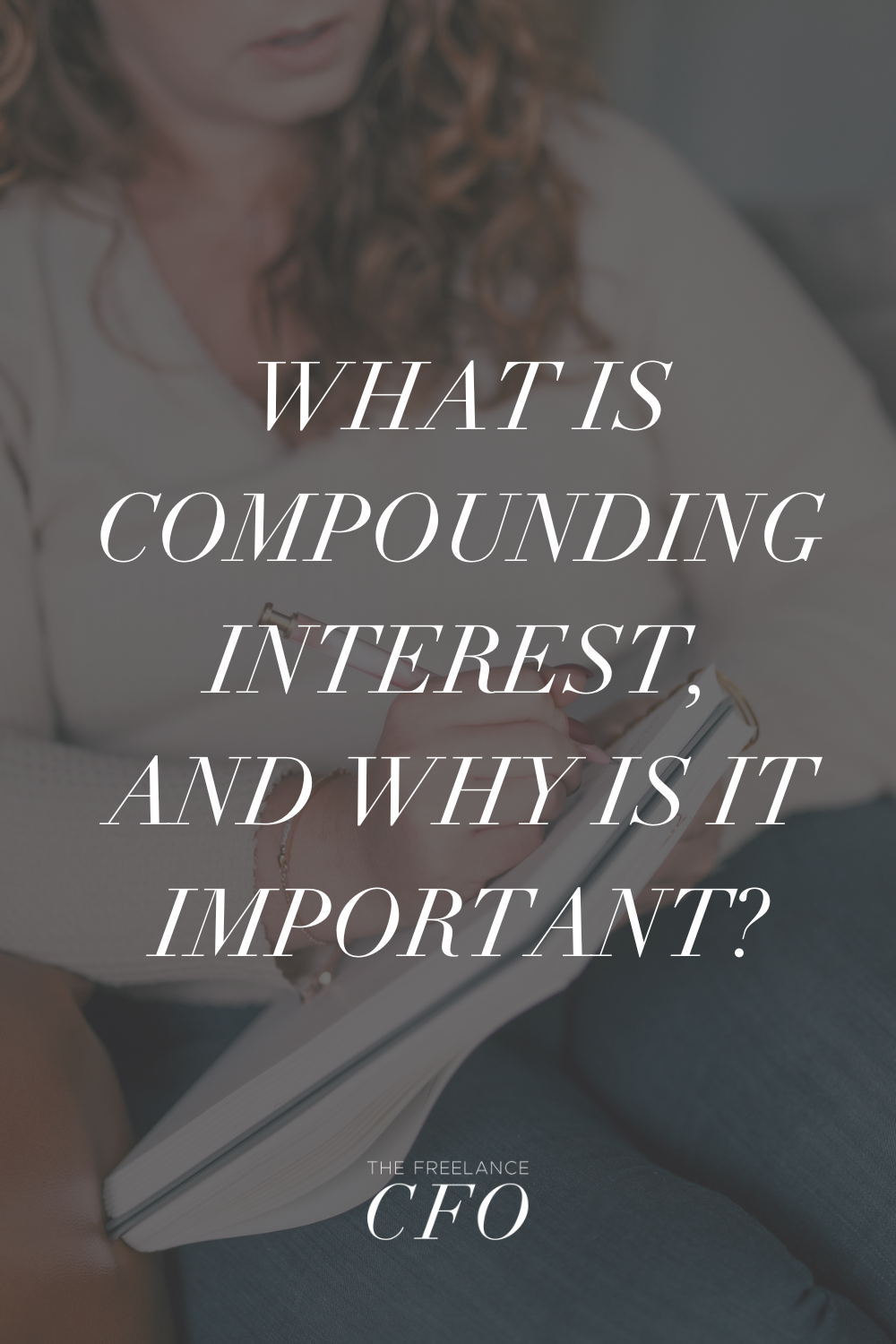What is Compounding Interest, and Why Is It Important?
Albert Einstein once said, “Compound interest is the eighth wonder of the world. He who understands it, earns it ... he who doesn't ... pays it.” And, with respect to how this mysterious and powerful “wonder” can change the lives of every single individual who chooses to invest their hard earned money into the stock market?
We’d have to agree.
And seriously, this dude studied theoretical physics. He was spouting off theories on relativity and coming up with the science behind quantum mechanics back when people were still arguing about what gravity really was. And if he understood the power behind compound interest in finance - a field in which he was by no means an expert - then, it’s obviously important.
But, what exactly is this magical, mysterious and all powerful concept?
Why do internationally renowned physicists care about financial concepts so much?
What is compound interest, and why the h*ll is it so important?
Let’s roll this back…. to something we’ve briefly touched upon before (and something we’re going to be talking about a lot more in the coming months) - investing.
The concept of investing is pretty simple, all things considered. You put money into an account, buy certain investments - whether that be stocks, bonds, mutual funds, ETFs, etc… - and with time (and an abundance of patience), that investment grows beyond even the rate of inflation. And how does this happen? Your investments earn interest, which I turn grows your overall investment exponentially.
But, how does that end up compounding?
With compound interest, you’re not just earning interest on your principal, like you would with your classic savings account found at a local bank or credit union. With compounding interest:
You add the interest earned back into your principal balance;
This, in turn, earns you even more interest;
Your returns compound.
Quite Simply?
Your interest earns interest.
More explanation needed? We got you.
Let’s start with the simple interest formula - the type of returns you’ll see in your traditional savings account. Imagine you put $1,000 in a traditional savings account which has an annual interest rate of 10%. In layman’s terms, you earn $100 per year. At the end of 5 years, you’ll have $1,500.
Now, let’s get into the compound interest formula - this is what we’re seeing in investment accounts. Imagine you put that same $1,000 in an investment account which has, again, an annual interest rate of 10%. Instead of earning just $100 a year, you’ll be adding that onto your principal, each and every year. After one year, you’ll have $1,100. After two years, you’ll have $1,210. And at the end of five years, you’ll have $1,610 - an entire $110 dollars more than what you would’ve made through a traditional savings account.
And those are just little league numbers. Let’s see what that could do for you with a larger sum of money, over a longer period of time.
Let’s use the same scenario above, but instead of $1,000, let’s take it up to $10,000.
Simple Interest (at 10%):
Start - $10,000
Year 1 - $11,000
Year 2 - $12,000
Year 5 - $15,000
Year 10 - $20,000
Year 20 - $30,000
Year 30 - $40,000
Compound Interest (at 10%):
Start - $10,000
Year 1 - $11,000
Year 2 - $12,100
Year 5 - $16,015
Year 10 - $25,397
Year 20 - $67,275
Year 30 - $174,494
And if that doesn’t blow your mind already, imagine what you could do with consistent and automated contributions to an investment account of your choosing.
Simple vs. Compound Interest could literally be a difference of hundreds of thousands of dollars of assets.
So, aside from finally doing the thing, investing and putting money into an account, what are ways you can make compound interest work for you?
Give yourself time, time, time.
Look no further than the difference between 2 years and 20 in the example above. Compound interest works best when you let it sit and do its thing.
Pay down your debt.
Compound interest can, in fact, work against you if you’re borrowing money. Think student loans, credit cards, etc… Those accounts actually compound the interest you owe, therefore exponentially increasing your total debt owed. The faster you can pay those down, the less you’ll owe over time.
Compare APYs.
The APR (annual percentage rate) is for simple interest accounts. The APY (Annual Percentage Yield) accounts for compound interest accounts. Make sure you’re tracking the right rate!
Check the rate of compounding.
Remember how we mentioned in #2 how compound interest can work against you? You can offset that, without freaking over your total debt. The more frequently an account compounds interest, the more you’ll earn (or owe). Likewise, the less frequently an account compounds interest, the less you’ll earn (or owe). Ideally, you want your savings to compound frequently, and your debts to compound infrequently.
Crunch your numbers!
When comparing different accounts, investments, or debts, it’s always a good idea to see how much you’ll end up over time. Fear not - no financial calculator needed here. There are free compounding interest calculators out there on the web; we like this one from Business Insider.
This isn’t theoretical physics by any means (and thank the finance gods for that), but compounding interest can become just as vital to our long-term, financial wellbeing as gravity is to, ya know… our bodies. Sticking around on earth.
Gravity is to humans, as compound interest is to financial freedom, ya feel?
But, seriously. Gravity is a concept that we technically understand, but most of us aren’t experts in, right? But we see how it affects our daily lives. We understand how it keeps us on Earth, while simultaneously propelling this Earth through the galaxy and beyond. And even if you don’t necessarily understand the nuances of compounding interest, investment portfolios, or anything like it - it’s important that we understand how vital it is.
Compound interest isn’t waiting for you to catch up. So, don’t let the fear of not understanding something completely keep you from doing the thing.
Start with our Confident Money with Katelyn Magnuson episode, “Investing 101” (E02S18). Sign up for our newsletter so you never miss a TFCFO blog post about all things investments. And check out our Pinterest for categorized financial goodness - including an entire section on Personal Finance and Investing.
Disclaimer: The information provided in this blog is for educational purposes only and does not constitute financial or tax advice. Reach out to The Freelance CFO team with any questions regarding specific financial concerns, or seek the services of a fiduciary.



